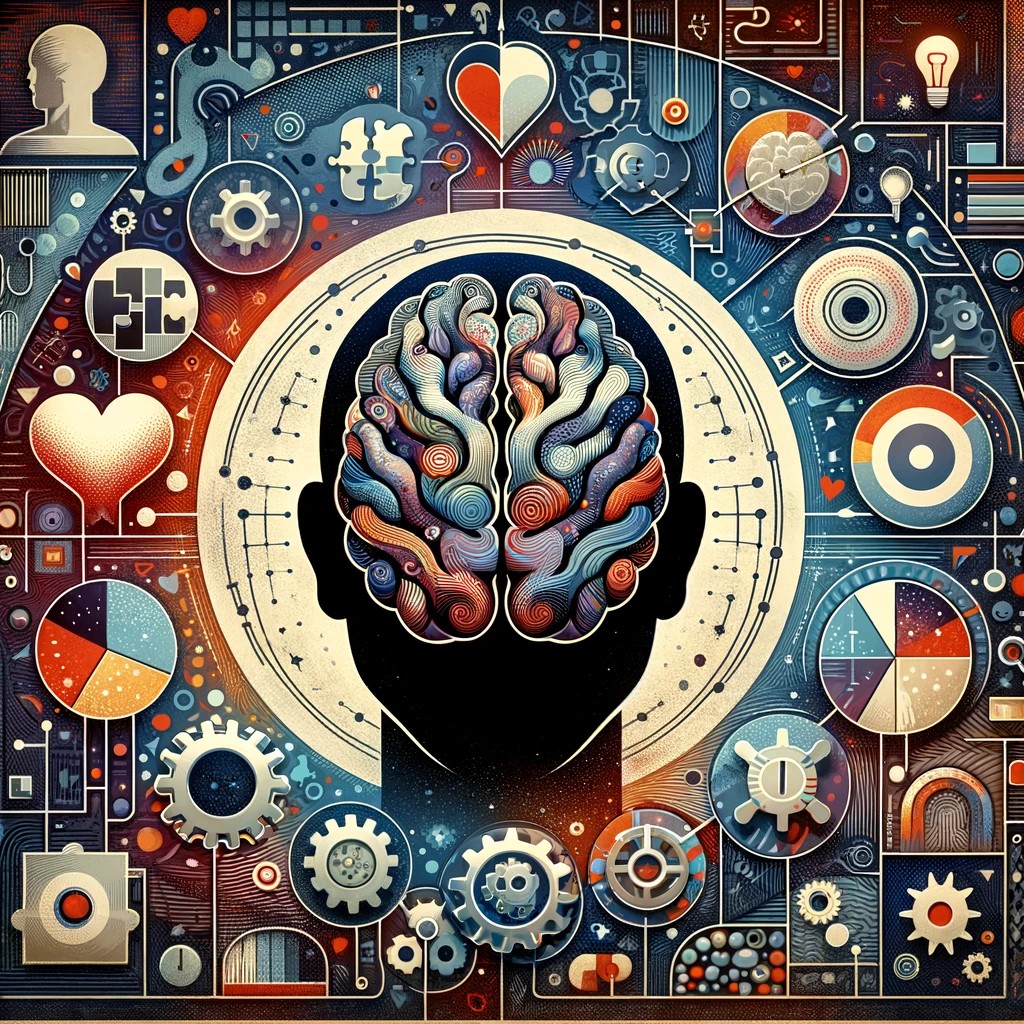An archetype is a concept used in various fields such as psychology, literature, and mythology, referring to a universally recognized symbol, theme, or character that transcends time and culture. Here are some key aspects of archetypes: In Psychology In Literature and Mythology General Characteristics In summary, an archetype can be thought of as a prototype, original model, or a quintessential example of a certain person, object, or concept. In psychology, they are seen as inherent elements of the human psyche; in literature and mythology, they are recurring symbols and themes that resonate across different cultures and time periods.
Continue ReadingPsychosomatic
The term “psychosomatic” refers to a physical illness or other condition that is caused or aggravated by a mental factor such as internal conflict or stress. In psychosomatic conditions, psychological factors play a significant role in the onset, manifestation, exacerbation, or persistence of physical symptoms. Key aspects include: It’s important to note that labeling a condition as “psychosomatic” does not mean that the physical symptoms are imaginary or “all in one’s head.” The symptoms are real and can cause significant distress or impairment. The term simply acknowledges that psychological factors play a role in the manifestation and experience of the physical symptoms.
Continue ReadingPositive Psychology
Positive psychology is a relatively new branch of psychology that focuses on the study of positive aspects of human life, such as happiness, well-being, and flourishing. Unlike traditional psychology, which often emphasizes pathology and mental illness, positive psychology is concerned with enhancing the quality of life and preventing the pathologies that arise when life is barren and meaningless. Key Concepts: Foundations and Development: Core Areas of Study: Happiness and Well-being: Applications in Therapy and Interventions: Measurement of Positive Constructs: Criticism and Challenges: Conclusion: Positive psychology represents a significant shift in the field of psychology, emphasizing the potential for growth, improvement, and fulfillment in human life. It offers a more holistic… Read More
Continue Reading
Psychology
Psychology is a discipline that studies the intricacies of the human mind and behavior. It is a vast field that explores a range of topics from basic neurological processes to complex interactions within societal structures. Key Concepts: Conclusion: The field of psychology provides vital insights into the human condition, offering understanding and solutions to a wide array of mental and behavioral challenges. It enhances our knowledge of how individuals think, feel, and act within different contexts, and its applications have profound impacts on personal development, health, and societal well-being. As a discipline, psychology continues to evolve, integrating new research and methodologies to better comprehend and address the complexities of the… Read More
Continue Reading
The Psychology of Righteousness
The psychology of righteousness involves understanding the mindset and motivations behind actions or beliefs that individuals perceive as morally right or just. This concept intersects with moral psychology, ethics, and cognitive processes. Here are some key aspects: In essence, the psychology of righteousness is complex, intertwining moral beliefs, social influences, cognitive processes, and emotional factors. It plays a significant role in shaping behavior, interpersonal relations, and social dynamics. The Definition of Righteousness Righteousness is a moral concept that refers to the quality or state of being morally right or justifiable. It encompasses a range of ethical, moral, and virtuous behaviors that are aligned with accepted standards of morality and justice.… Read More
Continue ReadingThe Psychology of God: An Exploration of Religious Beliefs
The concept of God and religious beliefs have been central to human history and culture for millennia, shaping individuals’ psychological and emotional landscapes. This exploration delves into the psychology of God, examining how belief in the divine influences human behavior, emotions, and well-being. The Nature of Belief: The Psychological Functions of God Belief: Religious Practices and Rituals: Moral and Ethical Framework: Coping with Existential Questions: Psychological Well-Being and Mental Health: Atheism and Non-Belief: Interfaith Dialogue and Understanding: Critique and Skepticism: In conclusion, the psychology of God encompasses a diverse array of beliefs, practices, and experiences that profoundly impact individuals and societies. Understanding the psychological dimensions of God belief can facilitate… Read More
Continue ReadingThe Psychology of Displacement: An Exploration
Displacement is a psychological defense mechanism identified by Sigmund Freud, and it involves redirecting one’s emotions, thoughts, or impulses from their original target toward a substitute target. This concept sheds light on how individuals cope with challenging emotions, conflicts, or stressors. In this exploration, we delve into the psychology of displacement and its various aspects. Understanding Displacement: Coping Mechanism: Impact on Relationships: Workplace Dynamics: Stress and Anxiety: Therapeutic Approaches: Cultural and Societal Influences: Self-Reflection and Awareness: In conclusion, the psychology of displacement offers valuable insights into how individuals navigate complex emotions and conflicts. Recognizing displacement in ourselves and others, understanding its impact on relationships and well-being, and employing healthier coping… Read More
Continue Reading